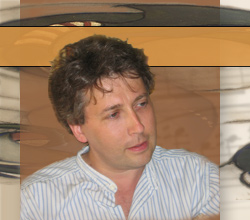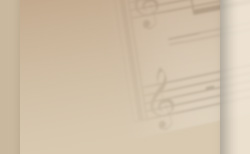There was an uncanny rightness about the prospect of setting Wordsworth's poetry for the
2009 Ulverston Festival because I have long been a passionate enthusiast for the so-called
Lakeland Poets. For over thirty years as a frequent visitor to the region I have walked the fells
and soaked up the poetry with which they are associated.
The involvement of a narrator brings a highly-charged spirit and clarity of communication despite
the fact that a sonnet is more a vehicle for private, even abstract thought rather than narrative drama.
I found this to be an exciting way of presenting Wordsworth's wonderfully crystalline mode of expression.
In 'Scorn not the Sonnet' I have followed Wordsworth's musical imagery closely. The music opens
with a Miltonian trumpet call which provides the theme for the rest of the movement - being, in effect,
a set of miniature variations. The pace and mood is considerably varied throughout.
The second sonnet begins in a rather desolate tone - that of the eternal pessimist. This is not
Wordsworth's own view of life and as he invokes the transforming power of imagination, so the music
is transformed with a grand statement of an earlier figure heard in the piano and the addition of an exultant
passage for the violin. The work concludes in a peaceful and reflective manner.
These settings are concise; one cannot stretch a sonnet too far without doing violence to such a
carefully balanced form, but I hope they will convey the sense of a larger underlying statement. Although
these particular sonnets are not descriptive of the Cumbrian fells, Wordsworth's distinctive voice is eloquent
of an unfettered mind - a mind liberated by the freedom of the hills.
1. Scorn not the Sonnet
Scorn not the Sonnet; Critic, you have frowned,
Mindless of its just honours; with this key
Shakespeare unlocked his heart; the melody
Of this small lute gave ease to Petrarch's wound;
A thousand times this pipe did Tasso sound;
Camoens soothed with it an exile's grief;
The Sonnet glittered a gay myrtle leaf
Amid the cypress with which Dante crowned
His visionary brow: a glow-worm lamp,
It cheered mild Spenser, called from Faeryland
To struggle through dark ways; and, when a damp
Fell round the path of Milton, in his hand
The Thing became a trumpet, whence he blew
Soul-animating strains - alas, too few!
2. Weak is the will of Man
Weak is the will of Man, his judgment blind;
Remembrance persecutes, and Hope betrays;
Heavy is woe; -- and joy, for human-kind,
A mournful thing, so transient is the blaze!
Thus might 'he' paint our lot of mortal days
Who wants the glorious faculty assigned
To elevate the more-than-reasoning Mind,
And colour life's dark cloud with orient rays.
Imagination is that sacred power,
Imagination lofty and refined;
'Tis hers to pluck the amaranthine flower
Of Faith, and round the Sufferer's temples bind
Wreaths that endure affliction's heaviest shower,
And do not shrink from sorrow's keenest wind.
William Wordsworth
Click a score sample below to view a larger version of the score...
Scorn not the Sonnet
Weak is the will of Man
World Premiere: Two Wordsworth Sonnets
Sunday 7th June 2009
Part of the Ulverston Festival.
Counterpoise | Coronation Hall, Ulverston
Works: Two Wordsworth Sonnets









































